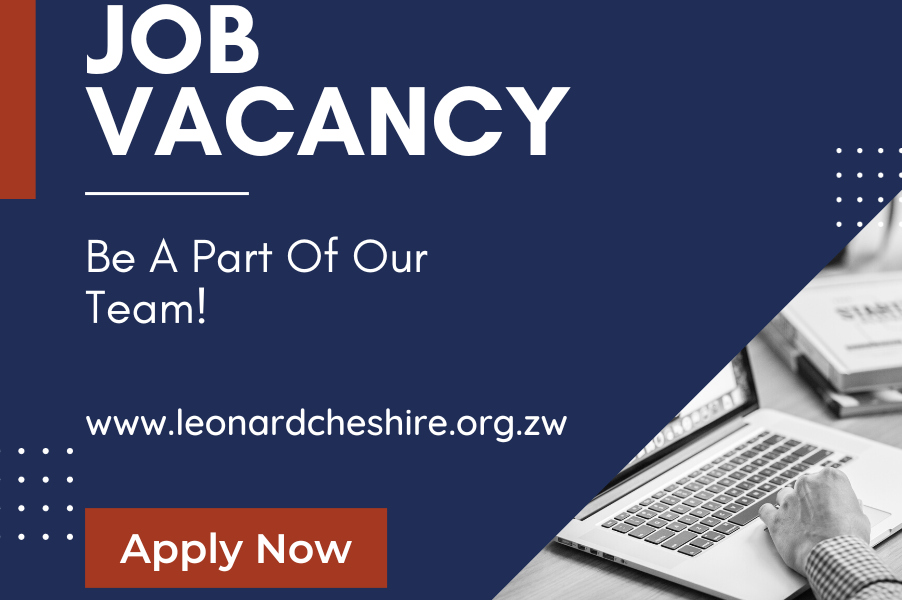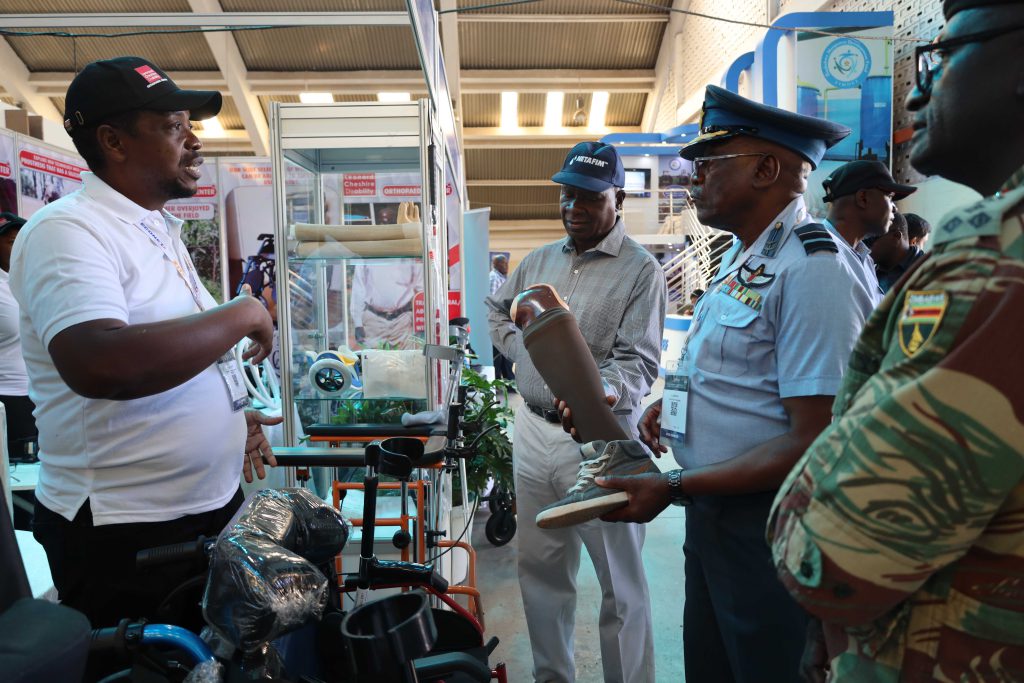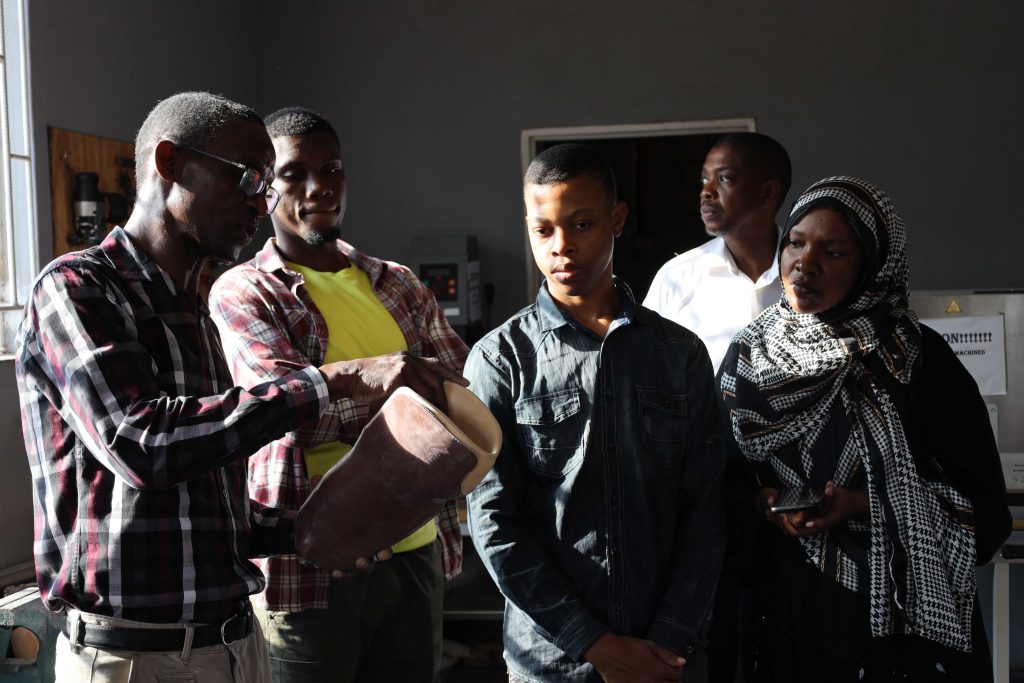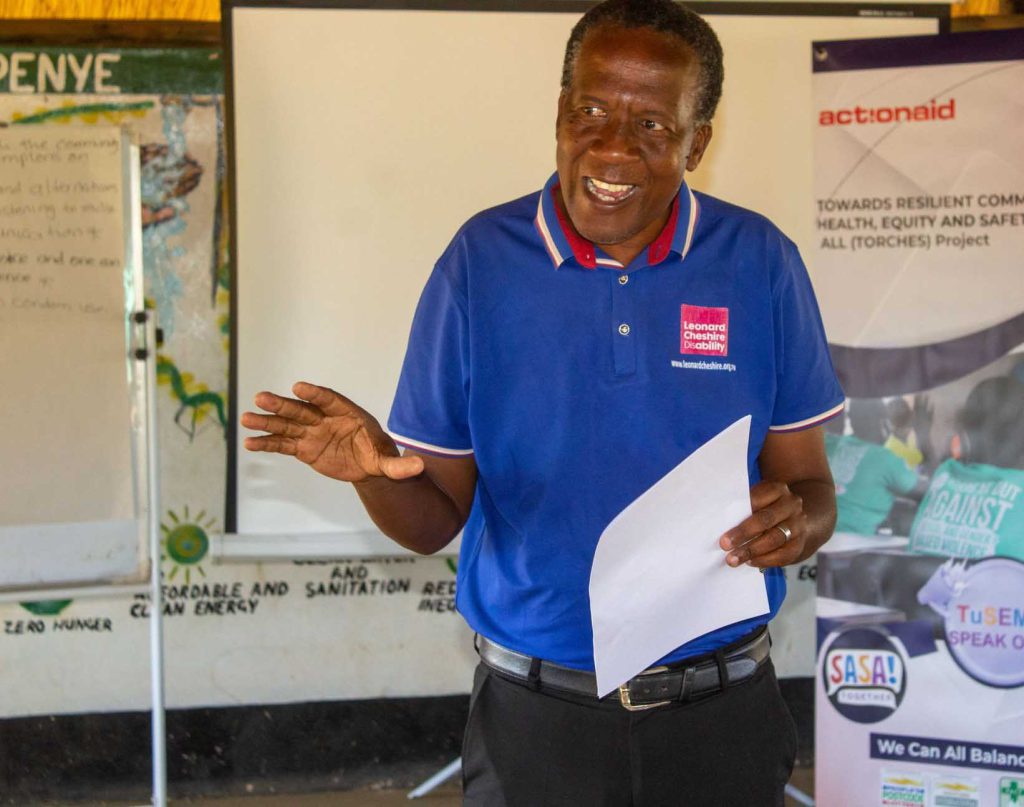Vacancies
SUPPORTING QUALITY INTEGRATED INCLUSIVE EDUCATION AND EYE HEALTH SERVICES IN MASVINGO PROVINCE OF ZIMBABWE Leonard Cheshire Disability Zimbabwe wishes to engage a skilled, knowledgeable and experienced consultant to submit a Baseline Survey response related to the attached TOR not later than the 10th of October 2023 clearly stating their understanding of the TOR, methodology, Budget and Composition of their proposed team etc. The terms of reference provide a scope/guide of the proposed baseline survey for the project – Supporting quality integrated inclusive education and eye health services in Masvingo Province of Zimbabwe. Broadly, the project seeks to support accessible, equitable and quality inclusive education and eye health for children and young persons with disabilities in Masvingo province. TERMS OF REFERENCE FOR THE BASELINE SURVEY SUPPORTING QUALITY INTEGRATED INCLUSIVE EDUCATION AND EYE HEALTH SERVICES IN MASVINGO PROVINCE OF ZIMBABWE SEPTEMBER 2023 INTRODUCTION LCDZ wishes to engage a consultant to supply the services set out in the Schedule of Deliverables below. The Consultant is expected to offer consultancy services in relation to such services and has considerable skill, knowledge and experience in this field. These terms of reference provide a scope/guide of the proposed baseline survey for the project – Supporting quality integrated inclusive education and eye health services in Masvingo Province of Zimbabwe. The project which commenced in July 2023 has a three-and half-years duration. Broadly, the project seeks to support accessible, equitable and quality inclusive education and eye health for children and young persons with disabilities in Masvingo province. Background of the Implementing Organisations Leonard Cheshire Disability Zimbabwe (LCDZ) is a non-profit making disability service organisation registered as a Private Voluntary Organisation (PVO 36/80). The organisation envisions a society in which every person with a disability can enjoy their rights and have the opportunity to fulfil their potential. Its mission is to enable Persons with Disabilities to improve their quality of life and to campaign for the removal of the barriers which hinder them. LCDZ values and promotes a culture of disability inclusion, openness and self-sustenance through implementation of various projects throughout Zimbabwe. Morgenster mission hospital has robust experience in offering inclusive eye health services in the province since 1992. Through the Masvingo Province Eye Care Programme (MPECP)- a corporation between the MoHCC, Reformed Church in Zimbabwe and CBM, the hospital has been running programs to reduce and prevent reversible blindness in the province. MPECP provides, (i) medical and surgical eye care services (consultations, surgeries and refractions) at the Morgenster Mission Hospital and (ii) regular mobile outreaches clinic to all 7 districts offering eye health training, screening, assessment, treatment, provision of spectacles and low vision devices during. Zimbabwe Association for the Visually Handicapped (ZAVH) is an active Organisation of Persons with Disabilities experienced in the advocacy for disability inclusive development and mobilisation of persons with disabilities for their rights. Background to the Project The project is being carried out by three partners in a consortium namely Leonard Cheshire Disability Zimbabwe, Morgenster Mission Hospital and Zimbabwe Association for the Visually Handicapped (ZAVH) in the 7 districts of Masvingo with funding from Christian Blind Mission Global . According to Zimbabwe National Survey on Persons with disabilities living conditions conducted in 2013, there are more than 600 000 children with disabilities of school going age who have never attended school, with more than 70% living in rural areas. Other co-existing factors are also responsible for adding to such high incidences of inability to access education. The 2020 Comprehensive Situational Analysis on Persons with Disabilities Report noted that school – going children and youth with disabilities are also prone to physical emotional, and sexual abuses. It is therefore, progressive to ensure that safeguarding and child protection measures be upheld as part of efforts to enhance access to education. Overall, the absence of early interventions has seen a huge restriction to equal opportunities for those with disabilities in the later years. For example, it was found that out of an enrolment of 28000 in teacher education colleges in 2021, only 1.7% were PWDs. Inclusive Education and eye health are intertwined elements and are seen as central to improving education outcomes in underdeveloped communities. The government of Zimbabwe through the Ministry of Primary and Secondary Education (MoPSE) is making several efforts to promote inclusive education; however, gaps still exist. The challenges range from structural, attitudinal, institutional, and economic, within an environment of discriminatory practices against girls with hidden disabilities such as intellectual disabilities driven by socio-cultural norms and inaccessible infrastructure. When access to education is limited, areas such as finance, nutrition and health, family, and employment are put at risk and can further increase poverty. This intervention seeks to address functionality challenges faced by children and young people in Masvingo in order to enhance school enrolment, attainment and retention. Project Context The intervention seeks to ensure that 8327 learners with disabilities already in schools are retained and transition across grades, have access to early eye screening and, improved children safeguarding environments and access to community managed livelihoods that will cater for their nutrition, fees, transport, and classroom-care needs. Masvingo province has functional difficulty prevalence of 10.4%, 1.2 percentage points above the national figure (Zimbabwe National Census, 2022). According to a Rapid Assessment of Avoidable Blindness survey (RAAB) conducted in 2019, the major causes of blindness in Masvingo province include untreated cataracts (74.1%), glaucoma (8.2%) and refractive errors (4.6%). Project Strategies According to the project, inclusive education interventions include improvement of teaching and learning facilities for children with disabilities, provision of enabling resources; lobbying and advocacy for policy and attitude changes, as well as strengthening the capacity of teachers to handle diversity and effectively manage the teaching and learning of learners with disabilities. Eye health services focus on eye health screening services, refraction services, provision of spectacles, low vision services and provision of devices at outreach and base hospital. Safeguarding and child protection aspects of the intervention capacitate project staff and stakeholders. The project also includes an inclusive complaints and feedback mechanism on abuse and exploitation




